11 Recovery Stocks That Could Get a Vaccine Spark
The FDA's full approval of a COVID-19 vaccine was just the catalyst downtrodden recovery stocks needed, analysts say.


Profit and prosper with the best of Kiplinger's advice on investing, taxes, retirement, personal finance and much more. Delivered daily. Enter your email in the box and click Sign Me Up.
You are now subscribed
Your newsletter sign-up was successful
Want to add more newsletters?

Delivered daily
Kiplinger Today
Profit and prosper with the best of Kiplinger's advice on investing, taxes, retirement, personal finance and much more delivered daily. Smart money moves start here.

Sent five days a week
Kiplinger A Step Ahead
Get practical help to make better financial decisions in your everyday life, from spending to savings on top deals.

Delivered daily
Kiplinger Closing Bell
Get today's biggest financial and investing headlines delivered to your inbox every day the U.S. stock market is open.

Sent twice a week
Kiplinger Adviser Intel
Financial pros across the country share best practices and fresh tactics to preserve and grow your wealth.

Delivered weekly
Kiplinger Tax Tips
Trim your federal and state tax bills with practical tax-planning and tax-cutting strategies.

Sent twice a week
Kiplinger Retirement Tips
Your twice-a-week guide to planning and enjoying a financially secure and richly rewarding retirement

Sent bimonthly.
Kiplinger Adviser Angle
Insights for advisers, wealth managers and other financial professionals.

Sent twice a week
Kiplinger Investing Weekly
Your twice-a-week roundup of promising stocks, funds, companies and industries you should consider, ones you should avoid, and why.

Sent weekly for six weeks
Kiplinger Invest for Retirement
Your step-by-step six-part series on how to invest for retirement, from devising a successful strategy to exactly which investments to choose.
Recovery stocks were all the rage heading into 2021, and indeed, many of them outperformed the broader market by staggering margins – at least for a while.
But as the pace of vaccination against COVID-19 slowed and the Delta variant emerged, many recovery stocks that were soaring on reopening and economic expansion came tumbling back down.
Happily, the recovery trade is coming back, analysts say. Indeed, the Food and Drug Administration's full approval in August of the COVID-19 vaccine produced by Pfizer (PFE) and BioNTech (BNTX) was just the catalyst downtrodden recovery stocks needed.
It's not just that full approval is spurring some vaccine-hesitant individuals to finally get their shots, experts note. It's also inducing more organizations to require their employees to get vaccinated.
Stocks in some of the most cyclical or pandemic-sensitive sectors – such as travel, leisure, hospitality and gaming – are just a few candidates for outperformance as a "recovery trade 2.0" take holds.
With that in mind, we searched the Russell 1000 for analysts' favorite names in key, economically sensitive sectors. After digging through the fundamentals, analysts' recommendations and research, we settled on these 11 names as the best recovery stocks to buy now.
Data is as of Aug. 23. Dividend yields are calculated by annualizing the most recent payout and dividing by the share price. Stocks listed in reverse order of analysts' consensus ratings.

Anheuser-Busch InBev
- Market value: $120.0 billion
- Dividend yield: 1.9%
- Analysts' opinion: 11 Strong Buy, 3 Buy, 13 Hold, 1 Sell, 1 Strong Sell
Anheuser-Busch InBev (BUD, $60.61) took a big COVID-related hit from sales of beverages at bars, restaurants, sporting events and everywhere else consumers drink beer away from home.
Even if their customers imbibed a bit more than they usually would in the privacy of their own dwellings, the world's largest brewer – responsible for the Budweiser and Bud Light brands, as well as Beck's, Cass, and even Corona and Modelo (outside of the U.S.) – still is set to lap increasingly easy year-over-year comparisons as life returns to normal.
Make no mistake: BUD shares continue to labor under the impact of the novel coronavirus. The stock remains below the levels it occupied before the pandemic selloff began in February 2020. Indeed, it lost 15% last year, and while the stock put up a double-digit rally through June, that has since been erased, and BUD is off 13% in 2021.
But an attractive valuation and improved top-line prospects have analysts turning incrementally more positive on the name.
"There is clear underlying value at BUD and we continue to see an attractive outlook for the equity story in the medium term," writes Jefferies analyst Edward Mundy (Buy). "Upside will take place as the bear points are addressed one by one, including Altria overhang, questions around medium-term growth, margins and deleveraging."
That Altria (MO) overhang pressuring BUD stock is the expiration of the tobacco company's five-year lockup period on Oct. 10; Altria owns 9.4% of BUD's shares outstanding. Mundy says he detects a "high degree of aversion" on the part of long-term investors to commit to BUD before those shares potentially flood the market and depress the price.
Taking a closer look at the valuation, analysts expect BUD to deliver average annual earnings growth of 17.5% over the next three to five years, according to data from S&P Global Market Intelligence. And yet the stock trades at 17.2 times projected earnings for 2022.
Although concerns remain about costs, margins and the balance sheet, analysts' consensus recommendation stands at Buy.

Expedia Group
- Market value: $21.5 billion
- Dividend yield: N/A
- Analysts' opinion: 11 Strong Buy, 2 Buy, 18 Hold, 0 Sell, 0 Strong Sell
Like a number of recovery stocks, Expedia Group (EXPE, $142.84) got off to a hot start in 2021 but cooled off as anxiety over the COVID-19 Delta variant continued to mount.
Indeed, EXPE stock was up nearly 40% for the year-to-date through mid-March. Now, it's up less than 8% so far in 2021, lagging the S&P 500 by about 11 percentage points.
However, analysts say EXPE's recent underperformance affords investors an opportunity to get a good stock at an even better price.
"We expect leisure travel to continue to recover over the remainder of 2021, followed by accelerated recovery in 2022," writes Argus Research analyst John Staszak, who upgraded EXPE to Buy from Hold in late February and reiterated his stance in August. "Our long-term rating remains Buy based on our expectations for continued post-pandemic growth in online purchases of airline tickets, hotel rooms and other travel services."
Part of the bull case on EXPE rests on the expanding distribution of COVID-19 vaccines. The FDA's full approval of the Pfizer-BioNTech Comirnaty vaccine only bolsters that point. Investors can also look forward to the eventual resumption of Expedia's dividend, which it suspended earlier this year, Staszak says.
"We do not expect the company to restore the dividend in 2021," the analyst writes in a note to clients. "However, we expect it to resume payments in 2022 at a quarterly rate of 35 cents per share, or $1.40 annually."
At that level, EXPE's dividend would yield about 1% at current share prices. The payout yielded 0.8% when the company suspended it in early March.
Argus Research finds itself in the majority on the Street, where analysts consensus recommendation on EXPE stock stands at Buy. The Street expects revenue to increase 60% to $8.3 billion in the current fiscal year, and rise another 40% to $11.4 billion in 2022.
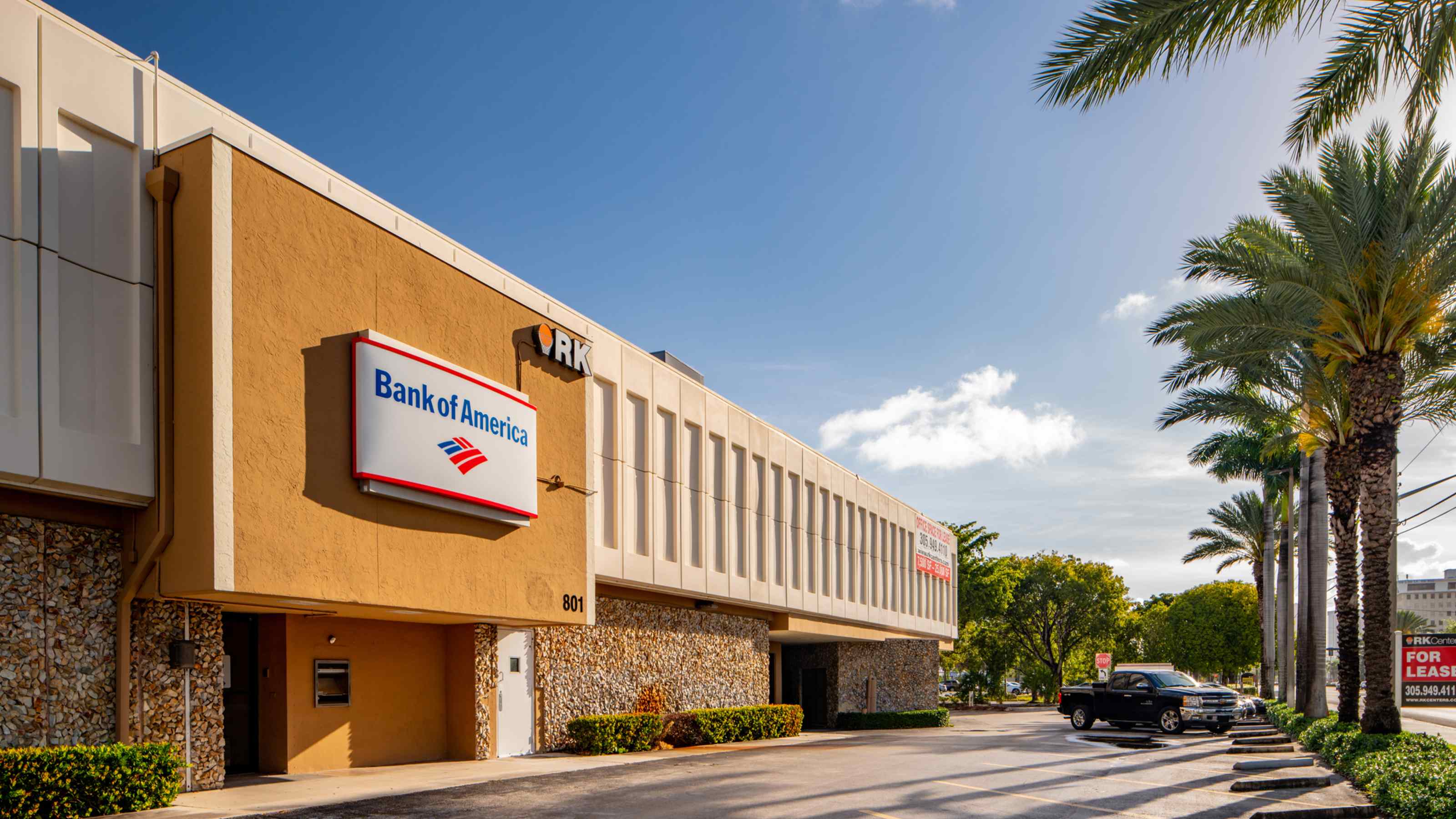
Bank of America
- Market value: $344.3 billion
- Dividend yield: 2.1%
- Analysts' opinion: 9 Strong Buy, 7 Buy, 8 Hold, 1 Sell, 1 Strong Sell
Bank of America (BAC, $40.91), as well as other sprawling money-center banks, are considered to be among the best recovery stocks. That's because they act as a bet on domestic and international growth trends, both of which stand to benefit when the pandemic recedes.
Not that any of this is a secret. Financial stocks are the best sector in the S&P 500 this year, gaining more than 28%. And BAC, with a year-to-date gain of 35%, is more than pulling its weight.
Although BAC has slowed down over the past few months – its three-month chart is actually negative – analysts say it's poised to generate plenty more market-beating returns ahead.
"One shouldn't take a look at bank stocks' recent performance and then by a kind of reverse inquiry assume that there was something wrong with second-quarter numbers, or that bank fundamentals have become more risky or frail in recent weeks," writes Oppenheimer analyst Chris Kotowski, who rates BAC at Outperform (the equivalent of Buy).
The vaccines "mainly seem to be working," the analyst adds. And as long as that's the case, it's "hard to imagine the developed economies that have access to them going back into widespread lockdowns."
In other words, economic growth and higher interest rates remain the path of least resistance, and so the reflation and recovery trades are still in play for BAC and peers.
At Raymond James, analyst Jeff Harte adds that Bank of America's wealth management division enjoyed record inflows in the first half of 2021.
"Led by Merrill Lynch's famous 'Thundering Herd,' the wealth management verticals remain well positioned for future growth," says Harte, who rates BofA shares at Overweight (Buy).
Harte and Kotowski's bullish ratings contribute to a consensus recommendation of Buy, according to S&P Global Market Intelligence.

Coca-Cola
- Market value: $243.6 billion
- Dividend yield: 3.0%
- Analysts' opinion: 11 Strong Buy, 5 Buy, 10 Hold, 0 Sell, 0 Strong Sell
The bad news: The pandemic put a big hurt on sales of Coca-Cola (KO, $56.44) products at restaurants, bars, cinemas, live sports and other events. The good news: KO will come up against easy comparisons as the world emerges from the COVID-19 era, essentially setting it up for a spring-loaded recovery in revenue.
Although some analysts caution that the overhang of ongoing tax litigation could weigh on investor sentiment regarding KO shares, certain macroeconomic and fundamental factors point to Coca-Cola as one of the better recovery stocks for investors who love big, sturdy blue chips.
"While the company has seen significant disruption from COVID-19, we believe that earnings probably bottomed in the second quarter of 2020 and should continue to improve as economies reopen and consumers return to restaurants and, eventually, to amusement parks and sporting events," writes Argus Research analyst Chris Graja (Buy). Graja recently upgraded his price target on KO shares to $65 per share, from $63, following a better-than-expected Q2 2021 earnings report.
At Credit Suisse, analyst Kaumil Gajrawala (Outperform) notes KO is clearly demonstrating "accelerating momentum as the pandemic recedes," and believes the company's recently raised guidance could be "conservative given this momentum."
And BofA Securities analyst Bryan Spillane rates KO at Buy, as his team "expects KO to emerge from the crisis in a stronger position."
Coca-Cola's stock is up just 3% for the year-to-date, lagging the broader market by roughly 16 percentage points. Although investors are still waiting for the share price to get a recovery kick, those who own KO for dividend growth have no complaints. Coca-Cola has raised its payout without fail for 59 consecutive years – most recently, a 2.4% increase to 42 cents a share quarterly in February.
Of the 26 analysts issuing opinions on KO stock who are tracked by S&P Global Market Intelligence, 11 rate it at Strong Buy, five say Buy and 10 call it a Hold. That gives this component of the Dow Jones Industrial Average a consensus recommendation of Buy.
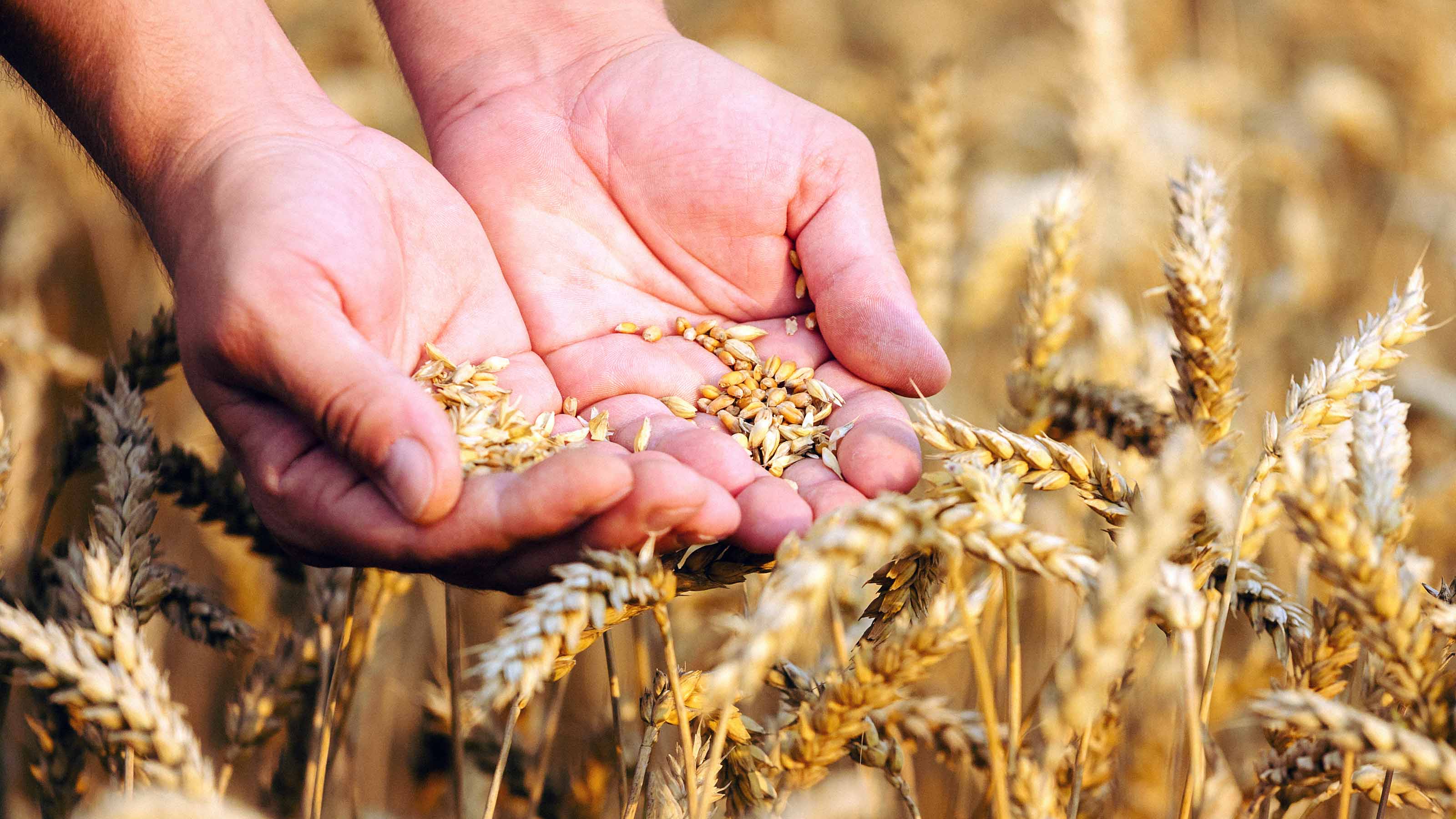
Archer Daniels Midland
- Market value: $33.2 billion
- Dividend yield: 2.5%
- Analysts' opinion: 8 Strong Buy, 3 Buy, 4 Hold, 1 Sell, 0 Strong Sell
Shares in Archer Daniels Midland (ADM, $59.31) were sitting on a year-to-date gain of more than 36% as recently as early June. Now, they're actually lagging the broader market by more than a percentage point.
But the recovery thesis remains intact, analysts say.
Although increased demand for comfort foods, snacks, staples and other eat-at-home packaged foods have helped ADM navigate the pandemic well, the global food ingredients giant has no shortage of catalysts coming amid a return to normalcy.
The shuttering of restaurants, bars, live sports and entertainment and other public venues hurt sales of starches, sweeteners and other products in its food services businesses. At the same time, shelter-in-place restrictions in Europe took a toll on its overseas biodiesel business, while a decline in gas demand in the U.S. forced a temporary shutdown in ethanol productions.
Those segments now have the opportunity to bounce back. Add in expectations for future growth in other divisions, and several analysts have ADM among their best recovery stocks.
"ADM reported strong second-quarter results, with an improved outlook around its nutrition segment, which remains both a long-term growth driver and differentiator relative to its agriculture segment peers," notes Baird analyst Ben Kallo (Outperform).
At Stifel, analyst Vincent Anderson cites industry-wide leadership in grain and oilseed processing, continued growth in the nutrition business and "undervalued shares" as contributors to his Buy recommendation on ADM stock.
"We believe the firm's strategy of leveraging its scale and logistical network into downstream integration will add long-term value and reduce earnings volatility," Anderson adds.
Per the valuation, ADM trades at less than 13 times 2022 earnings estimates. Meanwhile, analysts project average annual earnings-per-share (EPS) growth of 8.2% over the next three to five years.
With eight Strong Buy recommendations, three Buy calls, four Holds and one Sell, the Street's consensus recommendation on ADM comes to Buy, according to S&P Global Market Intelligence.

Walt Disney
- Market value: $322.8 billion
- Dividend yield: N/A
- Analysts' opinion: 16 Strong Buy, 6 Buy, 5 Hold, 0 Sell, 0 Strong Sell
Dow component Walt Disney (DIS, $177.66) is another recovery play that blasted off in the early part of 2021 only to gradually give up those gains. And then some.
Shares in the media and entertainment conglomerate are now negative for the year-to-date, trailing the broader market by 21 percentage points. But analysts say it's only a matter of time before a sort of "recovery trade 2.0" reinflates DIS shares.
After all, the coronavirus took a huge bite out of some of the company's most important divisions: specifically, its theme parks and studios. But while attendance at amusement parks and cinemas remains below pre-pandemic levels, it does continue to track higher.
Although Disney "still faces risks from the pandemic, particularly from the spread of the Delta variant," notes Argus Research analyst Joseph Bonner (Buy), "strength in its television, theme parks and direct-to-consumer businesses should continue to gain momentum."
Bonner adds that the old saying that "luck favors the prepared" can be applied to Disney's November 2019 launch of the Disney+ video service. The streaming platform is a smashing success, having already amassed more than 100 million subscribers – a staggering rate of growth. Indeed, Disney+ quickly claimed about half as many subscribers as Netflix (NFLX), which had a roughly 12-year head start.
At CFRA Research, analyst Tuna Amobi (Buy) writes that Disney is showing "major strides" on the road to recovery.
"With further reopening of theme parks, theaters and live sports events amid the vaccine rollout, we see a silver lining on the gradual path to more normalized operations through the second half of the fiscal year, accelerating in fiscal 2022," the analyst adds.
Analysts as a group are solidly bullish on Disney, giving it a consensus recommendation of Buy, with high conviction.
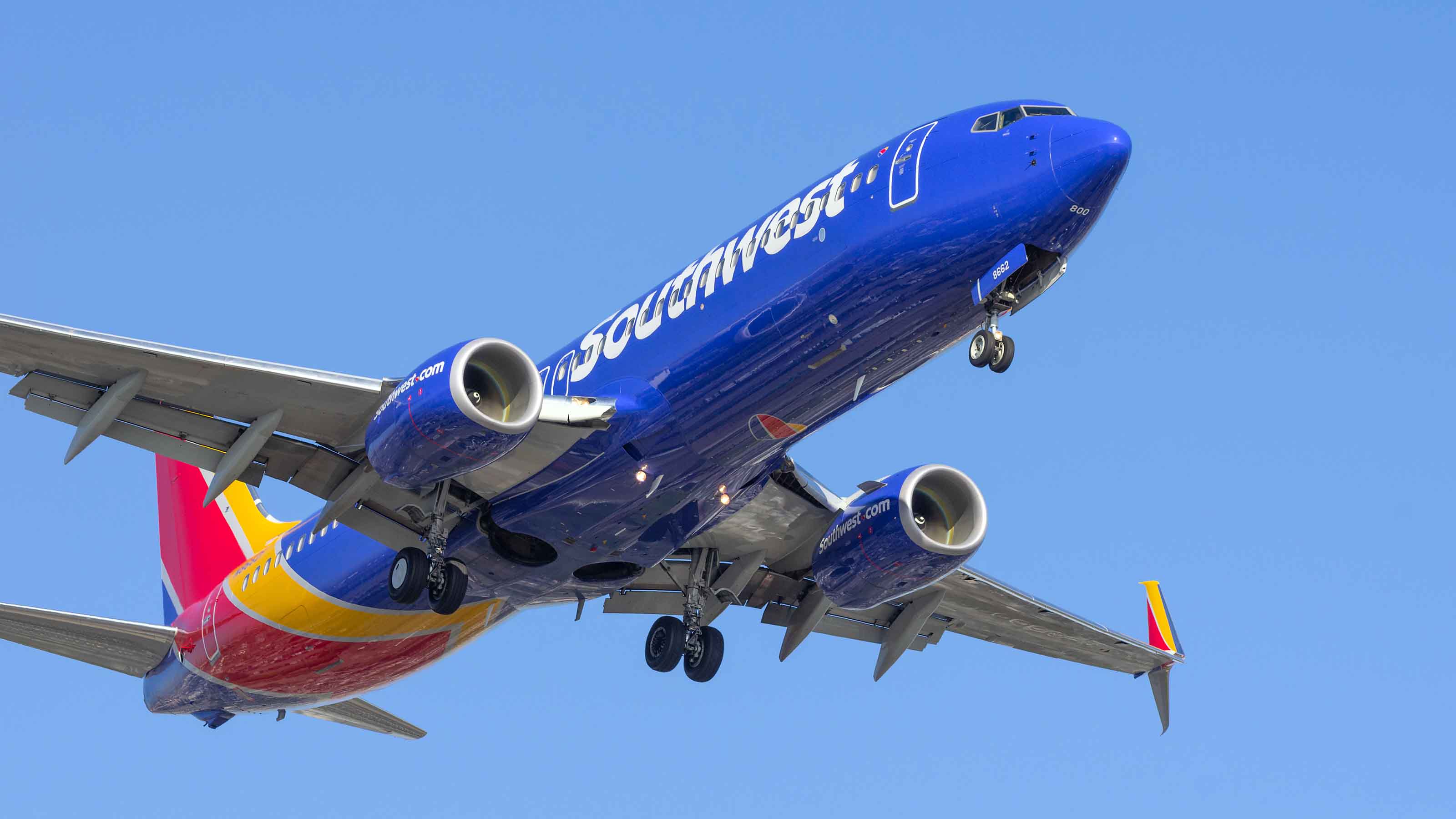
Southwest Airlines
- Market value: $28.8 billion
- Dividend yield: N/A
- Analysts' opinion: 14 Strong Buy, 5 Buy, 4 Hold, 0 Sell, 0 Strong Sell
Airlines were among the most popular recovery stocks earlier this year, soaring to what turned out to be unsustainable heights.
That was certainly true of Southwest Airlines (LUV, $48.71). Shares had gained nearly 40% for the year-to-date at one point in early April, but they've since lost most of their lift. LUV was up just 4.5% for the year-to-date through Aug. 23, trailing the S&P 500 by nearly 15 percentage points.
However, while vaccine-hesitancy and the spread of COVID-19's Delta variant sucked much of the sentiment out of the sector, analysts say the selloff in LUV is overdone.
True, air travel demand has seemingly "stalled out" since mid-July, notes analyst Christopher Stathoulopoulos at Susquehanna Financial Group. But North American booking and trends for flights departing in the second half of 2021 and the first quarter of 2022 "are tracking fairly positive, suggesting that traveler confidence has not meaningfully eroded with the rise in COVID-19 cases."
Stathoulopoulos, who rates LUV at Positive (the equivalent of Buy), adds that LUV's recent stock performance indicates that "investors are looking past the Delta variant and, arguably, accepting that variant-related volatility might be the new normal over the next four to six months."
The 24% selloff in LUV stock since its April 6 closing high has also made the valuation significantly more compelling, analysts say. Shares currently change hands for 15.4 times 2022 estimated earnings. That represents a discount of almost 18% to their own five-year average, according to data from Refinitiv Stock Reports Plus.
The bargain valuation – and LUV's standing as one of the most efficient low-cost carriers – helps explain analysts' stubbornly bullish outlook even as uncertainty clouds the forecast for air travel.
The consensus recommendation of the 23 analysts issuing opinions on LUV stock is a Buy, and one with high conviction, according to S&P Global Market Intelligence. Fourteen pros rate shares a Strong Buy, five say Buy and four call it a Hold; none call it a Sell. Lastly, their average target price of $66.71 gives LUV implied upside of about 37% in the next 12 months or so.

Wyndham Hotels & Resorts
- Market value: $6.5 billion
- Dividend yield: 1.4%
- Analysts' opinion: 8 Strong Buy, 2 Buy, 1 Hold, 0 Sell, 0 Strong Sell
Shares in Wyndham Hotels & Resorts (WH, $69.33) rode the recovery trade to a gain of almost 30% for the year-to-date through early July. They have since reversed, and now essentially match the performance of the broader market so far this year.
But analysts have stuck by the name through the resurgence in COVID-19 and believe it's poised to outperform once again.
After all, not all hotels are the same. Wyndham – whose brands include La Quinta, Ramada, Super 8 and Travelodge – stands to enjoy a disproportionate lift from the return of mass-market business and leisure travel. As a result of those characteristics, analysts say WH remains a comeback play in the lodging industry.
But a compelling valuation and business model that generates ample free cash flow – the cash remaining after capital expenditures, dividend payments and financial obligations have been met – are what really make WH stand out.
"WH has a capital-light business model with largely recurring and high margin streams of fee revenue, which makes WH highly free-cash-flow generative," writes Stifel analyst Simon Yarmak (Buy). "We believe the shares are undervalued."
Jefferies analyst David Katz (Buy) concurs, saying that "accelerating free cash flow should lead to accelerating dividends, beyond the 50% increase in the second quarter of 2021, as well as share repurchases."
Baird analyst Michael Bellisario (Outperform) echoes the sentiment.
"Cash flows continue to improve and more capital is being returned to shareholders," Bellisario writes, "and given the better-than-expected second-quarter performance and full-year outlook, we see an increasing likelihood that share repurchases could resume later this year."
The Street's consensus recommendation on WH stands at a rare Strong Buy, according to S&P Global Market Intelligence. Eight analysts rate it at Strong Buy, two say Buy and one has it at Hold.

Alaska Air Group
- Market value: $6.9 billion
- Dividend yield: N/A
- Analysts' opinion: 11 Strong Buy, 3 Buy, 1 Hold, 0 Sell, 0 Strong Sell
Alaska Air Group (ALK, $55.15) is another airline set to benefit disproportionately from a recovery in the sector even though enthusiasm for shares waned over the summer, analysts say.
As with Southwest Airlines, Susquehanna Financial Group analyst Christopher Stathoulopoulos (Positive) notes that North American booking and trends for flights departing in the second half of 2021 and the first quarter of 2022 "are tracking fairly positive, suggesting that traveler confidence has not meaningfully eroded with the rise in COVID-19 cases."
Meanwhile, in late July, CFRA Research analyst Colin Scarola upgraded ALK to Strong Buy from Buy, citing a number of tailwinds for the carrier.
"With July air passenger traffic in the U.S. trending 9% above June (Delta variant notwithstanding), we expect an unabated demand recovery for ALK, with material profit in both the third quarter and fourth quarter," Scarola writes.
ALK shares have fallen steeply since mid-May, "even as operations turned more profitable than expected in June and the outlook for the remaining international and business travel recovery has greatly improved," the analyst adds.
The selloff presents an attractive buying opportunity, says Scarola, hence his upgrade to Strong Buy. ALK was trailing the S&P 500 by more than 13 percentage points for the year-to-date through Aug. 23.
In addition to the attractive valuation, Stifel analyst Joseph DeNardi (Buy) likes Alaska Air's unique fundamental advantages.
"We believe Alaska's favorable exposure to a relatively strong and durable geography of the U.S. economy reduces the risk that Alaska emerges from the COVID-19 pandemic with significantly lower structural demand," DeNardi says.
Analysts as a group are highly bullish on the name, per S&P Global Market Intelligence. Their average 12-month price target of $80.20 gives ALK stock implied upside of 45%, and their consensus recommendation comes to Strong Buy.

Gaming and Leisure Properties
- Market value: $11.2 billion
- Dividend yield: 5.6%
- Analysts' opinion: 14 Strong Buy, 3 Buy, 1 Hold, 0 Sell, 0 Strong Sell
Gaming and Leisure Properties (GLPI, $47.81) is an analyst favorite in the casino real estate investment trust (REIT) sector thanks to both a snazzy dividend yield and attractive growth prospects as we ease our way out of the pandemic.
Unlike other recovery plays that have stumbled after a hot 2021 start, GLPI has been in a steady uptrend pretty much all year. The downside? It's been an underperformer much of the time and currently lags the S&P 500 by about 6 percentage points.
Be that as it may, analysts remain confident in GLPI for the long haul, thanks to the strategic advantages of its portfolio. The company, whose properties include the Belle of Baton Rouge in Louisiana and Argosy Casino Hotel & Spa in Missouri, is benefiting from a stampede of gamblers returning to casinos.
Even though the spread of the Delta variant has introduced a degree of uncertainty into the return of business, analysts say multiple paths for growth – and GLPI's use of triple net leases – make the Buy case a slam dunk.
For example, UBS Global Research analyst Robin Farley upgraded the stock to Buy from Neutral in early August, citing a number of factors.
"We believe GLPI could see its multiple re-rating to triple net lease REIT multiples," Farley writes in a note to clients. "Additionally, the resilience of regional gaming tenants and the strength of lease terms have been proven in the last year, with GLPI unexpectedly reaching the benchmark for its May 2021 escalators. GLPI also has a pipeline of potential additional projects."
A triple net lease stipulates that the tenant agrees to pay expenses such as real estate taxes, building insurance and maintenance in addition to rent and utilities. Triple net lease REITs usually trade at higher earnings multiples.
An added bonus for income investors: Gaming and Leisure Properties' dividend yield of 5.6% towers over that of the wider equity REIT sector, which stands at a bit less than 3%, according to industry association Nareit.
Lastly, analysts' consensus recommendation stands at a rare Strong Buy, according to S&P Global Market Intelligence.

VICI Properties
- Market value: $15.8 billion
- Dividend yield: 4.9%
- Analysts' opinion: 13 Strong Buy, 2 Buy, 1 Hold, 0 Sell, 0 Strong Sell
Perhaps no Las Vegas property owner is better prepared for a return to normal in Sin City than VICI Properties (VICI, $29.41).
The casino REIT has been on an acquisition tear in the COVID-19 era, most recently scooping up MGM Growth Properties (MGP) for $17.2 billion. The move followed VICI's March purchase of the Venetian Resort Las Vegas from Las Vegas Sands (LVS) for $4 billion.
The whopper deals have some analysts doing handstands.
"As if the Venetian acquisition announced earlier this year wasn't enough (one of the most significant/transformational single-asset deals we've ever seen in REITland), VICI announced it has entered into an agreement to acquire MGM Growth Properties," writes Raymond James analyst RJ Milligan, who rates VICI at Strong Buy.
With MGP's portfolio of high-quality assets, VICI gains interests in "seven iconic gaming resort properties" on the Las Vegas Strip – including the MGM Grand Las Vegas and Mandalay Bay – Milligan adds.
Jefferies analyst David Katz (Buy) notes that, "post transaction, VICI will own 43 properties and will make VICI the largest gaming REIT and triple net lease REIT."
Other recent VICI deals include a $250 million acquisition of three regional casino properties in December and 2020's $1.8 billion purchase of the land and real estate assets associated with Harrah's New Orleans, Harrah's Laughlin and Harrah's Atlantic City.
For the last word on the most recent deals, let's return once again to Raymond James' Milligan, who emphasizes that "VICI is getting a highly attractive portfolio at a fair price. We can already look back on VICI's acquisition of the Venetian as a 'steal.'"
Analysts' consensus recommendation comes to Strong Buy, according to S&P Global Market Intelligence. The generous dividend yield of 4.9% also makes VICI one of the best recovery stocks from an income perspective.
Profit and prosper with the best of Kiplinger's advice on investing, taxes, retirement, personal finance and much more. Delivered daily. Enter your email in the box and click Sign Me Up.

Dan Burrows is Kiplinger's senior investing writer, having joined the publication full time in 2016.
A long-time financial journalist, Dan is a veteran of MarketWatch, CBS MoneyWatch, SmartMoney, InvestorPlace, DailyFinance and other tier 1 national publications. He has written for The Wall Street Journal, Bloomberg and Consumer Reports and his stories have appeared in the New York Daily News, the San Jose Mercury News and Investor's Business Daily, among many other outlets. As a senior writer at AOL's DailyFinance, Dan reported market news from the floor of the New York Stock Exchange.
Once upon a time – before his days as a financial reporter and assistant financial editor at legendary fashion trade paper Women's Wear Daily – Dan worked for Spy magazine, scribbled away at Time Inc. and contributed to Maxim magazine back when lad mags were a thing. He's also written for Esquire magazine's Dubious Achievements Awards.
In his current role at Kiplinger, Dan writes about markets and macroeconomics.
Dan holds a bachelor's degree from Oberlin College and a master's degree from Columbia University.
Disclosure: Dan does not trade individual stocks or securities. He is eternally long the U.S equity market, primarily through tax-advantaged accounts.
-
 Betting on Super Bowl 2026? New IRS Tax Changes Could Cost You
Betting on Super Bowl 2026? New IRS Tax Changes Could Cost YouTaxable Income When Super Bowl LX hype fades, some fans may be surprised to learn that sports betting tax rules have shifted.
-
 How Much It Costs to Host a Super Bowl Party in 2026
How Much It Costs to Host a Super Bowl Party in 2026Hosting a Super Bowl party in 2026 could cost you. Here's a breakdown of food, drink and entertainment costs — plus ways to save.
-
 3 Reasons to Use a 5-Year CD As You Approach Retirement
3 Reasons to Use a 5-Year CD As You Approach RetirementA five-year CD can help you reach other milestones as you approach retirement.
-
 Fed Vibes Lift Stocks, Dow Up 515 Points: Stock Market Today
Fed Vibes Lift Stocks, Dow Up 515 Points: Stock Market TodayIncoming economic data, including the January jobs report, has been delayed again by another federal government shutdown.
-
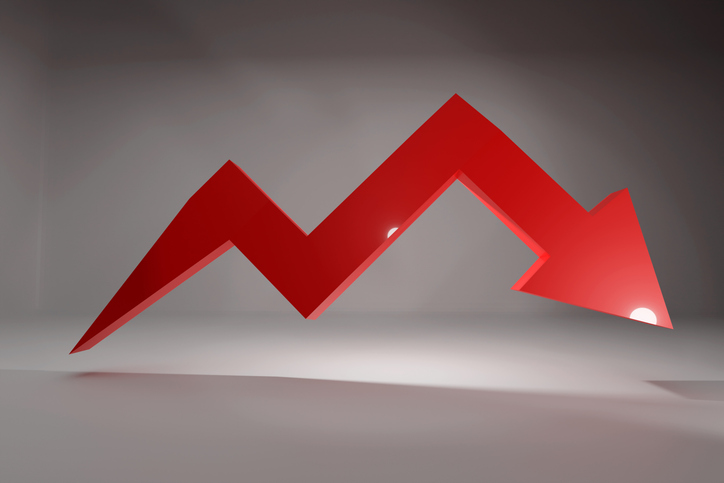 Stocks See First Back-to-Back Losses of 2026: Stock Market Today
Stocks See First Back-to-Back Losses of 2026: Stock Market TodayRising geopolitical worries and a continued sell off in financial stocks kept pressure on the main indexes on Wednesday.
-
 Nasdaq Takes a Hit as the Tech Trade Falters: Stock Market Today
Nasdaq Takes a Hit as the Tech Trade Falters: Stock Market TodayThe Dow Jones Industrial Average outperformed on strength in cyclical stocks.
-
 If You'd Put $1,000 Into Coca-Cola Stock 20 Years Ago, Here's What You'd Have Today
If You'd Put $1,000 Into Coca-Cola Stock 20 Years Ago, Here's What You'd Have TodayEven with its reliable dividend growth and generous stock buybacks, Coca-Cola has underperformed the broad market in the long term.
-
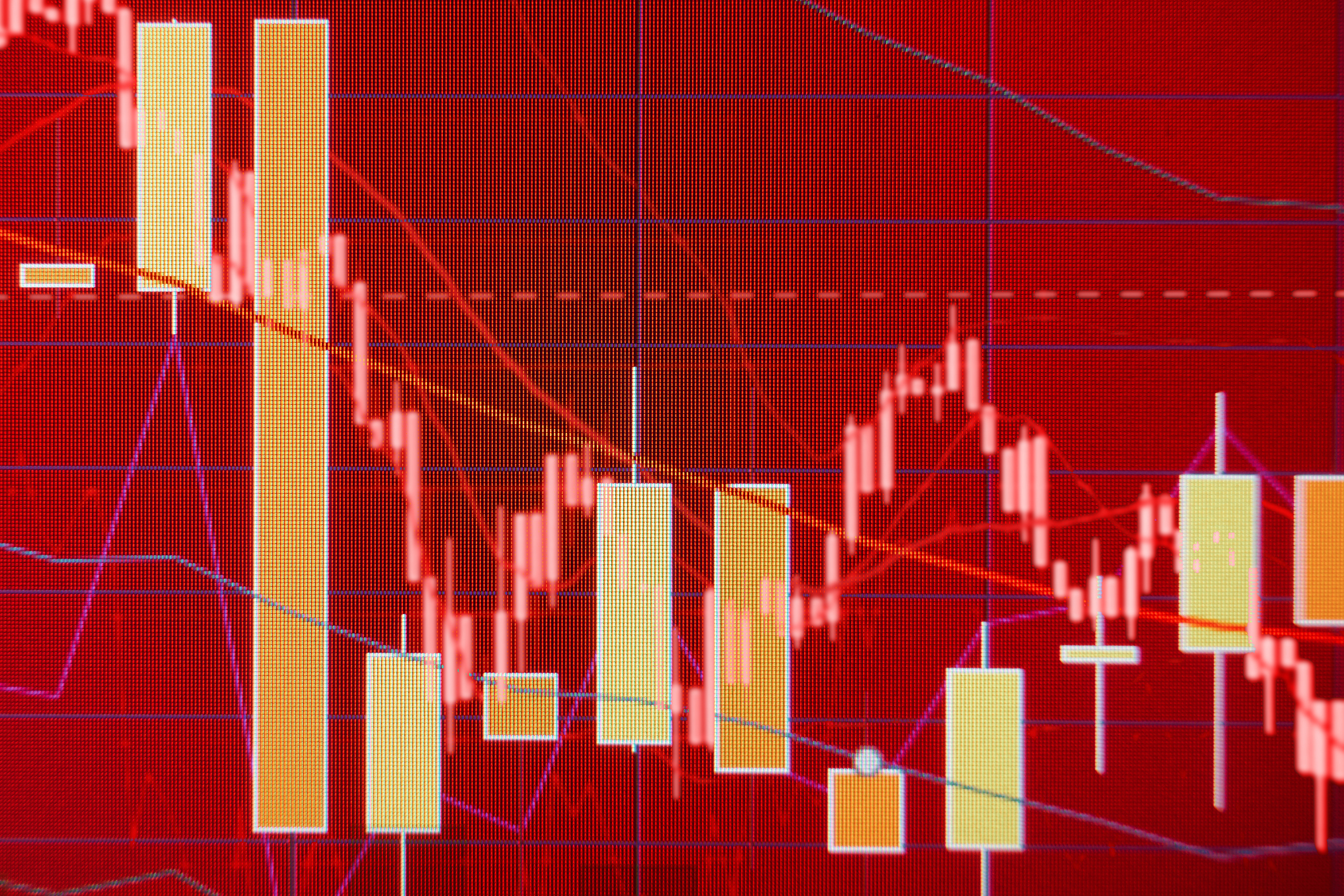 Dow Dives 797 Points as Government Opens: Stock Market Today
Dow Dives 797 Points as Government Opens: Stock Market TodayThe process of pricing and re-pricing realities old and new never stops, and next week promises to be at least as exciting as this week.
-
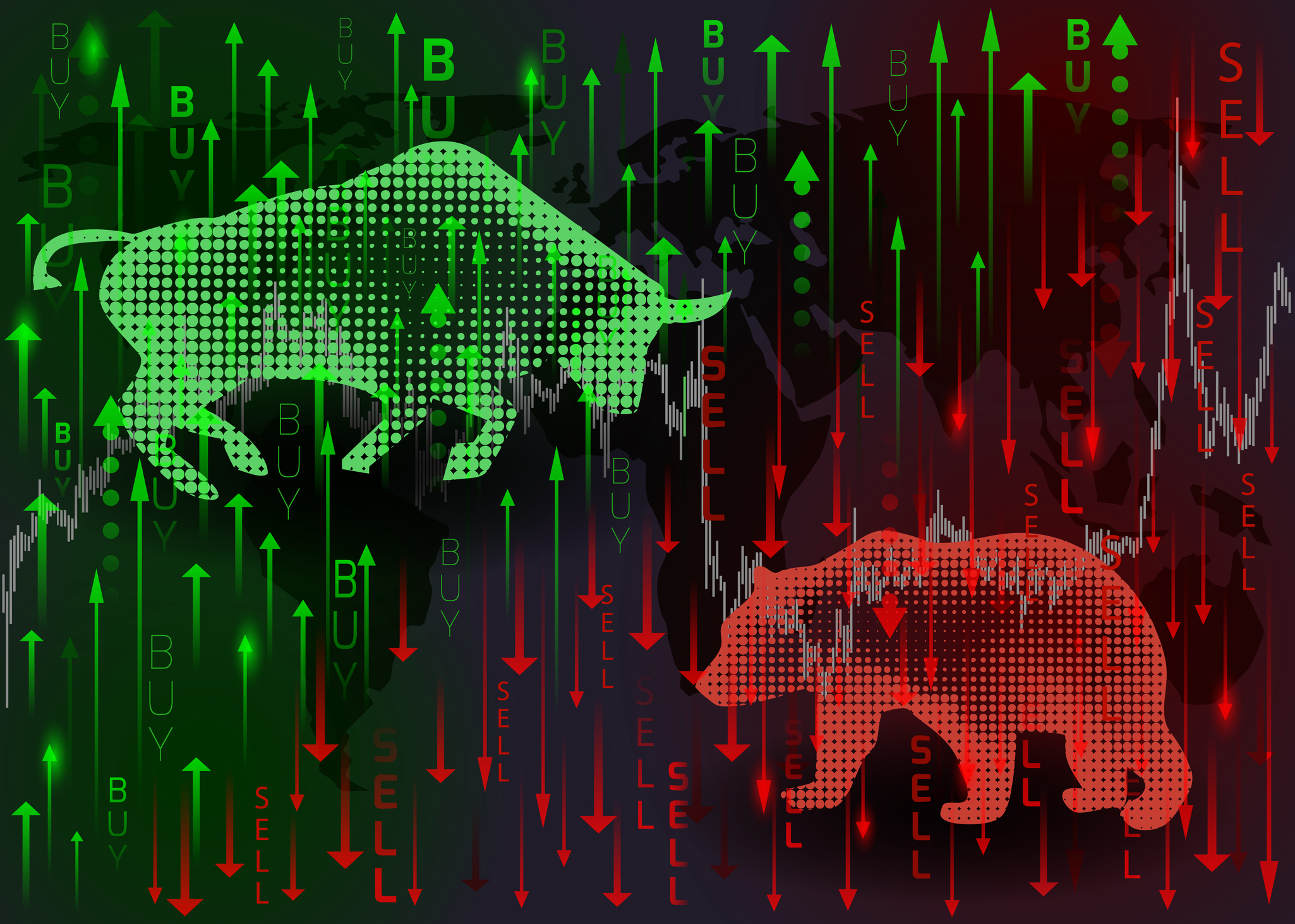 3M, GM, Blue Chips Lead to the Upside: Stock Market Today
3M, GM, Blue Chips Lead to the Upside: Stock Market TodayThe S&P 500 followed the Dow Jones Industrial Average into green territory, but the Nasdaq lagged the other indexes because of its tech exposure.
-
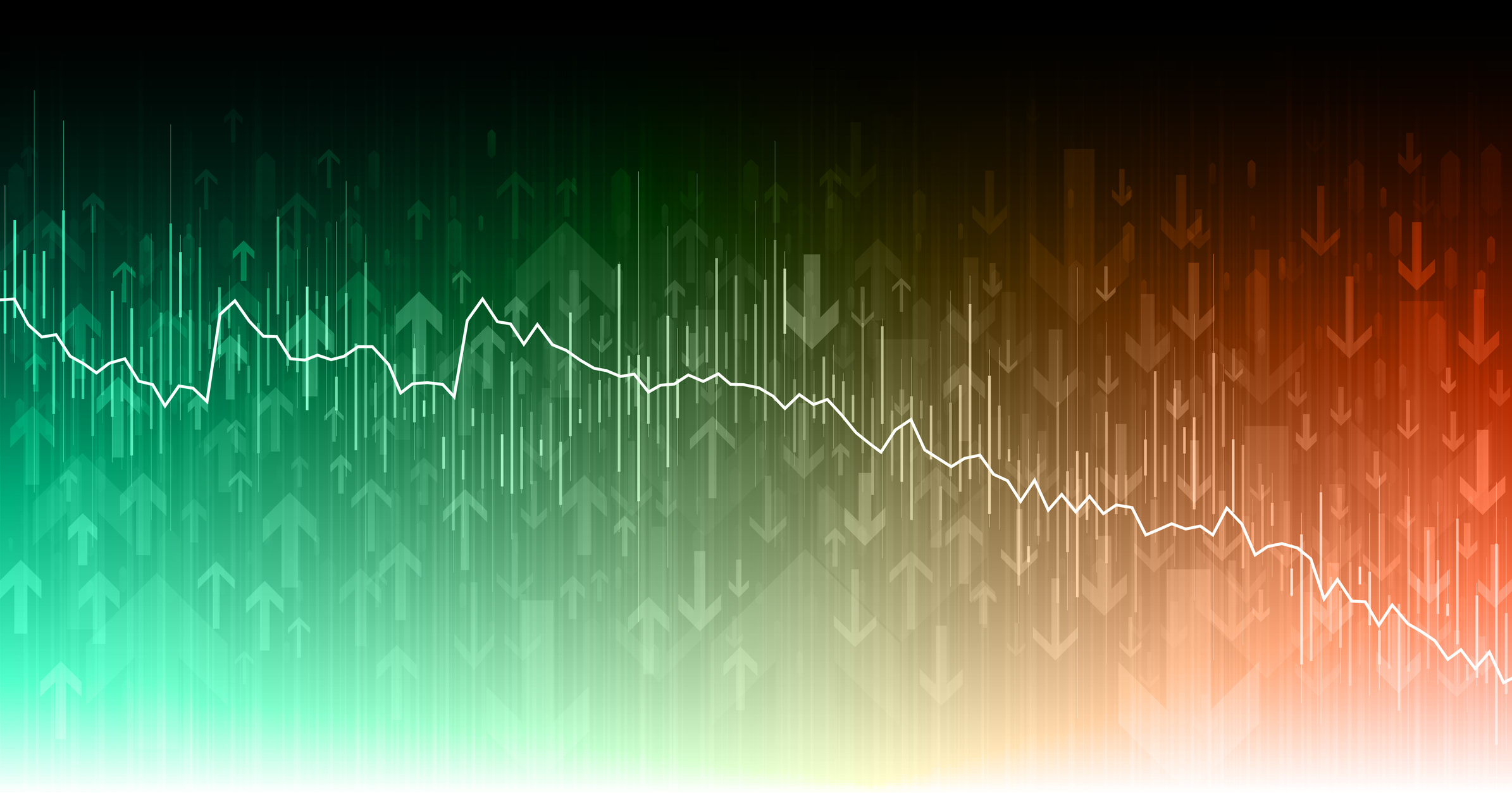 Trade Uncertainty Sparks Whipsaw Session: Stock Market Today
Trade Uncertainty Sparks Whipsaw Session: Stock Market TodayVolatility is making a cameo here in mid-October, a generally positive month marked by its historic stock market events.
-
 If You'd Put $1,000 Into Bank of America Stock 20 Years Ago, Here's What You'd Have Today
If You'd Put $1,000 Into Bank of America Stock 20 Years Ago, Here's What You'd Have TodayBank of America stock has been a massive buy-and-hold bust.
